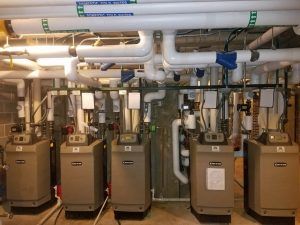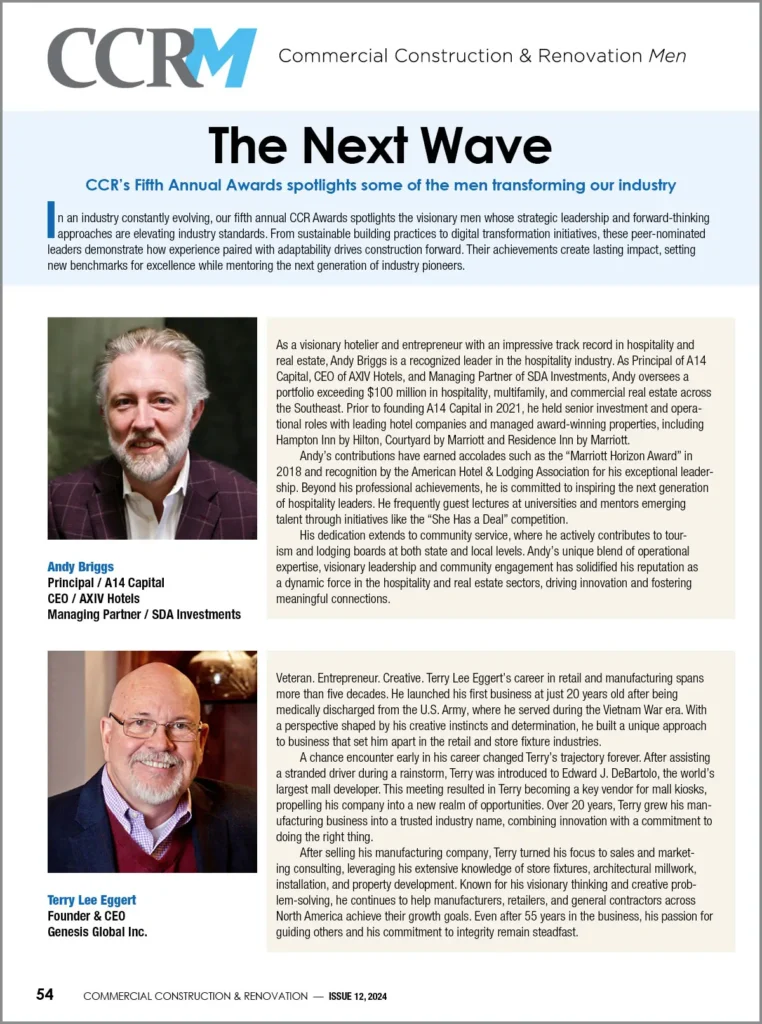
A failing steam heating system posed many issues and challenges for facility services at Cornell College in Mount Vernon, Iowa. Retrofitting campus buildings with high efficiency condensing boilers from Weil-McLain provided the solution needed for improved, head-of-the-class heating at the school.
Cornell College was founded in 1853 by George Bryant Bowman, a minister from North Carolina with a passionate belief in higher education. The campus has a rich history with some of the original buildings on campus dating back to the 1860s. The entire campus is listed on the National Register of Historic Places.
Installed in the late 1800s, the original Cornell College heating system consisted of a steam central plant that supplied all of the buildings on the university grounds with steam heat. Originally using coal, the school’s boiler plant was converted to gas in the 1960s. Three 350-horsepower gas powered steam boilers handled heat for the entire campus.
“When I joined the staff at Cornell College, 90 percent of the heat was produced by two steam boilers in our heating plant,” said Joel Miller, director of facility services for Cornell College.
Because of the age of the equipment, repairs were commonplace. According to Miller, the old boilers and infrastructure from steam piping and condensate piping had deteriorated.
“We were experiencing numerous faults with our in-ground steam lines and constant maintenance work on the steam boilers,” said Miller. “The steam lines were rusting which required repairs from building to building. It would often take a week or longer to fix if one of the steam boilers went off line, and when one was finally up and running, then the other would go down.”
Miller faced two options. Either replace most of the steam piping or consider another heating solution. The decision: Install more cost effective high efficiency boilers in campus buildings.
“It would have cost us significantly more money to replace all the steam piping and condensate piping throughout the campus,” said Miller. “We wanted boilers that were user-friendly so we could train our team how to use them—plus a heating system that could be monitored and controlled remotely.”
To conduct the project, Cornell turned to Pipe Pro Inc., a Cedar Rapids, Iowa-based company offering commercial and industrial plumbing, heating, and air-conditioning services.
Travis Godbey, service manager with Pipe Pro, oversaw the boiler upgrades at the school. Godbey had been handling repairs to the steam system on campus for years.
Working with Pipe Pro, Miller and team devised a strategy to take the college off of the central steam plant and convert each building one by one to a standalone high efficiency boiler system with remote operation.
Assignments Advance
One of the first retrofit projects took place at the popular residence facility, Olin Hall, situated across from the school’s sports complex. According to Miller, Olin is one of the farthest buildings from the steam plant and required constant repairs.
“Residents were constantly losing heat and we were having many problems with the system,” said Miller.
The team installed five Weil-McLain Ultra® 550 MBH high-efficiency condensing gas boilers in the building.
The Ultra features boiler-to-boiler communication, Modbus® and BACnet® for linking with BAS (building automation systems), express set up wizard, 10 preset typical heating systems, and updated controls interface for simpler navigation, at-a-glance boiler status, diagnostics and troubleshooting.
Three units were configured as the main heating boilers for Olin Hall while the other two were set up for domestic water. As part of the retrofit, thermostats were installed in each student’s room so they could regulate temperature for optimal comfort.
In addition to Olin Hall, the West Science Center was selected for a boiler upgrade. The team sought to replace the existing heat exchanger with a boiler that would fit into the same space. The SlimFit model was chosen for this installation. Two SlimFit 750 series boilers were set up as natural gas and installed in the building’s mechanical room.
“SlimFit boilers are manufactured for easy integration into existing systems,” said Godbey.
The boiler’s narrow housing enhances maneuverability for confined spaces and weight restricted areas. The design also increases usability and access for installing contractors, consulting engineers and facility managers for commercial retrofit projects.
The West Science Building already had a steam to hot water converter so the team installed new T’s off of the header and then connected the boiler.
“We used the building’s original pumps, original piping and plumbing for the retrofit,” said Miller. “The biggest issue was getting the intakes and exhaust for the boilers.”
“The SlimFit boiler was a perfect match for the space,” said Godbey. “We were able to remove the heat exchanger, and then just made a few simple changes.”
Project Tests
Each building upgrade featured its own unique set of challenges. Some buildings required additional piping and new pumps. The science building already had natural gas running to the building for lab experiments, but many of the other facilities only had steam pipes.
“A major project hurdle was getting utilities to each building,” said Godbey. “We had to plan each upgrade in advance to make sure the utility company could get gas mains installed and then plan accordingly.”
Another challenge was limited space.
“Because the buildings were built in the late 1800s or early 1900s, mechanical rooms were smaller in size,” said Miller. “It was difficult moving the old equipment out and the new equipment in.”
“For Merner Hall, another large residence, we had to install a 1.5 million BTU boiler,” said Godbey. “Thankfully, the SlimFit is built for tight spaces and we could bring it in through a standard door frame.”
In total, Pipe Pro completed eight conversions at the campus – all with Weil-McLain boilers. Installations occurred at Merner Hall, Olin Hall, West Science Center, Law Hall, and other administration and academic buildings. The boilers are configured to control each building individually and connected through a web-based system for monitoring and control.
Grading Results
Cornell College experienced several benefits from the elimination of the steam system and heat exchangers and installation of the Weil-McLain boilers.
Plus, the boilers are connected to a campus wide, web-based building control system for easy monitoring.
“I can easily track every unit on campus and can even set alarms if needed,” said Miller. “The control system displays boiler parameters from each building on any computer, note pad or phone and our team can make adjustments as needed in real time. This was never a possibility with the old system.”
As a standalone system, each building operates based on its own heating requirements.
“One can set low or high limits and turn the boilers on as needed,” said Miller. “By setting parameters, building occupants have more heating options.”
Miller also appreciates the ease of maintenance that the boilers offer for himself and staff.
“The boilers are really user friendly,” said Miller. “They don’t require the highly trained boiler operators needed for the steam plant. We can even conduct the annual maintenance on the units ourselves to keep them in tip-top shape.”
The change-outs also have led to energy savings. Overall the campus has experienced a 15 percent reduction in gas usage after eight conversions.
But most important, Miller reported that students and teachers are extremely pleased with the climate of the classrooms and residences.
“My phone does not ring as much since the change-outs,” Miller added.






























